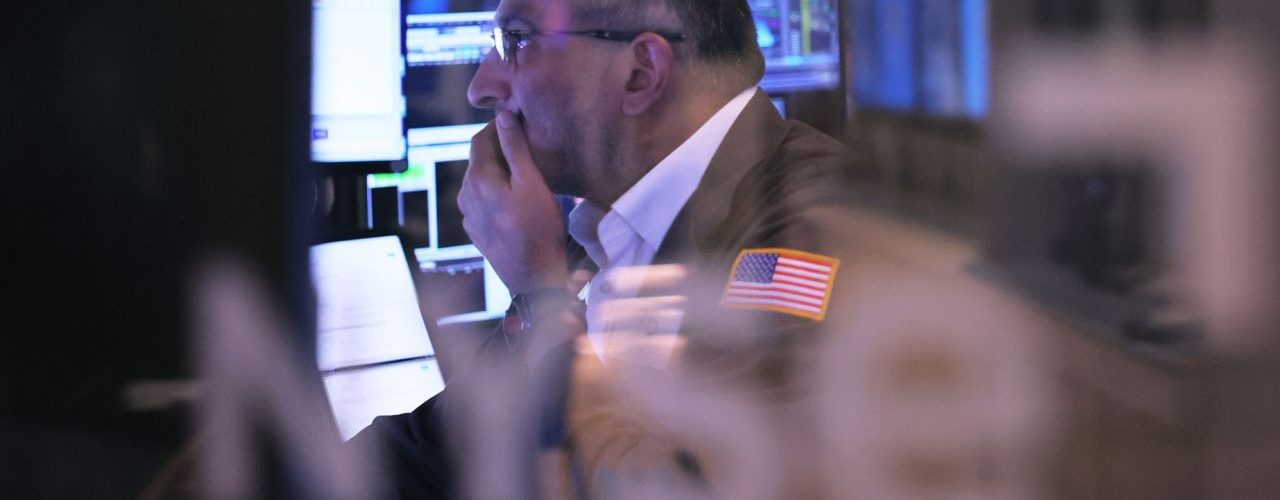Good and bad are simple concepts that do not translate in these weird economic times when the Federal Reserve is trying to slow down the US economy.
It’s just about impossible to figure out exactly what, if anything, you should be rooting for.
Today, let’s take a look at the good news that may actually be bad and the bad news that may be exactly what the larger economy needs.
CNN’s Christine Romans made this point about good news vs. bad news earlier in January. Read her analysis.
Good bad news
Should we cheer headlines that suggest the economy is slowing down, which is what economists want?
The Federal Reserve’s goal is to control inflation without causing a recession, commonly referred to as a “soft landing,” which actually feels like more turbulence.
One tool the Fed has used to slow down the economy and control price increases is to set key interest rates, which a special Fed committee has done repeatedly and stiffly in recent months in an effort to shock the economy.
Fed officials are expected to hike rates again next week, although less steeply.
Slowing, but still too high
Inflation has certainly slowed, at least according to government data. The latest indicator came last week with news from the Bureau of Labor Statistics that wholesale price growth was down in December. Retail sales were also down in December.
Another key government indicator, the Consumer Price Index, or CPI, suggested that inflation eased in December on a monthly basis for the first time in nearly three years.
Used car prices are down. People are paying under MSRP, or sticker price, for new cars.
The good news that inflation has slowed is tempered by the bad news that it’s still far above the Fed’s goal of 2%. The CPI that showed inflation had eased also suggested inflation remained at 6.5% over the past year. There’s still a long way to go.
Are layoffs like these good news?
So does that make it good news that tech and media companies are laying off workers, citing the dim economic situation, even though the layoffs are very bad news for those workers?
“How many people need to lose their jobs before the Fed stops its extreme interest rate hikes?” asked Democratic Sen. Elizabeth Warren on Twitter on Friday. A frequent critic of the Fed, she’s clearly ready to move on from rate hikes.
Maybe it’s good news that real estate sales are slowing, since it shows the higher interest rates are having an effect. Although, as CNN’s real estate reporter Anna Bahney notes, prices have not exactly come down.
When so many Americans rely on their houses for wealth, any hiccups in the housing market also feel bad.
Bad good news
The unemployment rate has not budged. It held steady at under 4% last month even though the Fed has predicted it would rise in the new year.
CNN’s Alicia Wallace writes the US labor market has stayed strong “despite pandemic-related ripple effects, geopolitical uncertainty, soaring inflation and the Federal Reserve’s attempts to knock down the surging prices.”
The tech workers hit by layoffs from the high-profile firms like Microsoft, Alphabet (which owns Google) and Meta (which owns Facebook) have options for new jobs at other worker-starved companies.
More expect a recession
Separately, Wallace writes, the number of business leaders who expect a recession has grown, according to surveys, and another report out Monday, the Conference Board’s Leading Economic Index, showed a decline in December for 10 consecutive months.
All this means that while Fed officials have suggested they could slow down the interest rate hikes, they have no intention of abandoning them.
“Even with the recent moderation, inflation remains high, and policy will need to be sufficiently restrictive for some time to make sure inflation returns to 2% on a sustained basis,” Fed Vice Chair Lael Brainard said last week in Chicago, previewing likely continued rate hikes.
What should we be rooting for?
I asked Wallace if we should be hoping for news that would normally be considered bad news – a higher unemployment rate, for instance. She wrote back that the Fed has acknowledged its efforts will bring “some pain” to households and businesses, but that persistently high inflation would be worse.
Wallace: We’re in the midst of that tough trade-off.
You don’t ever want to find yourself in a position where you’re rooting for negative economic data. It’s always important to keep in mind that behind every trend and data point is a real person who’s losing their job, someone else who is unable to scrape together for a down payment to finally buy a home, or a family forgoing critical medical care so they have enough in the bank to cover the rent check.
The Fed’s holding out hope for a soft landing with unemployment rising minimally. If the key inflation gauges continue on their downward path, and if the labor market gets tighter with job openings falling and more people re-entering the workforce, those are likely good signs for the Fed.
Monetary policy takes time (to take effect), so the inflation data might not yet be showing the full effects of the Fed’s actions. The rate hikes are expected to be smaller in the early part of this year, leading to a pause as the Fed continues to take stock.
Don’t blink
The former Treasury Secretary Lawrence Summers, who had been a fixture of Democratic administrations until he was left out of President Joe Biden’s economic team, was among the first loud voices to warn about inflation in recent years.
He said central bankers should not be tempted to accept higher rates of inflation, but rather continue to hit the brakes on the economy even as it begins to become ever more painful.
“I think to suppose that some kind of relenting on an inflation target will be a salvation would be a costly error that would ultimately have adverse efforts, as it did in a spectacular way during the 1970s, for real economies and working people everywhere,” Summers said during an appearance at the World Economic Forum in Davos, Switzerland, last week, raising the specter of the decades when the Fed maintained interest rates far above today’s levels for years on end.
He added: “The greatest tragedy in this moment would be if central banks were to lurch away from a focus on assuring price stability prematurely and we were to have to fight this battle twice.”
Funny endnote: When I was searching for an argument about why central banks should abandon their 2% inflation targets, I found one on the Brookings Institution website from 2018. It was written by Summers. Clearly a global pandemic and a war in Europe can change a person’s perspective.





